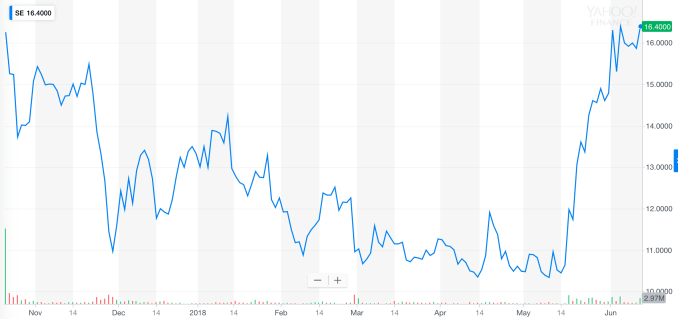Asian tech company M17, which operates a live-streaming platform and data app business, has confirmed that it has canceled its proposed U.S. public listing and raised private funding to keep its business alive.
The Taiwan-based company dramatically halted its NYSE listing last Friday despite pricing its IPO, and now it has clarified the situation. Well, sort of. In an announcement, the company said it had run into “settlement issues” related the listing which is why it was called off.
That’s fairly vague, but a little more color came from founder (and rapper) Jeffrey Huang, who lashed out at investment banks Citigroup and Deutsche Bank in a Facebook post (below), as noted by Bloomberg.
A spokesperson representing the company declined to comment further.
Rather than going public, M17 will remain private. The IPO was set to raise around $60 million — having been scaled down from an original target of $115 million — but now M17 has taken a $35 million injection from existing backers that include Infinity Venture Partners, Majuven, Convergence and Global Grand Capital.
The listing looked rocky from the start when M17 failed to hit that $115 million goal, while the shares were priced at $8, below the forecast range of $10-$12.
Investors weren’t taken by the business, it seems, which is primarily live-streaming services for registered artists in markets included Taiwan and Japan. It monetizes by selling virtual gifts to viewers who in turn give them to streaming artists. The company also operates dating services courtesy of M17’s merger deal with Singapore-based Paktor last year, but that accounts for under 10 percent of revenue.
TechCrunch Danny Crichton explained the situation last week when the IPO was halted, but M17’s surging revenue — which grew 3.2X year-on-year — was offset by significant losses — a negative $24.8 million in the first three months of this year — and stagnant active user growth. Alarmingly, the company had limited runway with just $31.4 million in cash and cash equivalents left on its books.
M17 had developed ways to monetize its user base more efficiently, but with some quirks. For example, its top 10 users represent 12 percent of all revenue on the platform — to the tune of $447,220 per user in the first three months of 2018 — while more broadly its top 500 users were responsible for the majority of total revenue. On the artist side, the top 100 streamers picked up over one-third of total income, too.
Finally, there may have been unease at the voting structure. Under a dual-class stock system, CEO Joseph Phua would maintain 56 percent of the voting rights with Class B shares voting at a 20:1 ratio against Class A shares.
The fresh cash injection will keep the business running a little longer, M17 will need to quickly figure out a Plan B to remain out of trouble.


